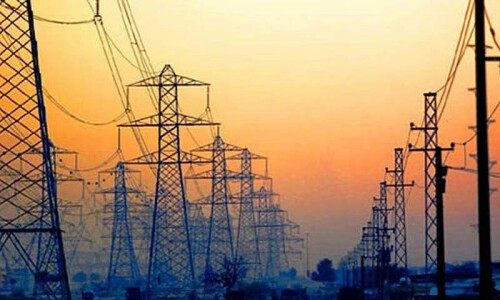AS we know, much has transpired in the country since the PTI’s November rally in Rawalpindi. Recent events are before us, including the de-notification and subsequent reinstatement by the Lahore High Court of the chief minister of Punjab. Political pundits were abuzz with questions as to the constitutionality of the de-notification by the governor of Punjab and, above all, about what lay ahead.
The issue that lingers is, however, clearly larger than the mere matter of the dissolution of the Punjab and KP assemblies, followed by elections in the two provinces, taking in, as it necessarily does, the issue of general elections. That is the catch — and a kind of stranglehold — from the point of view of the federal government.
In any case, the nation has suddenly been made to sit up and confront a dilemma it had so far assiduously avoided: as to whether, in keeping with the PTI chairman’s stentorian fiat, to settle for early general elections or, alternatively, in line with the PDM’s preference, opt for delay.
There are relevant questions that instantly come to mind. Will elections across the country prove a panacea for our present ills, including the plight of the homeless, hungry and sick in the flood-stricken areas of the country, if the PTI should win?
It was almost as if the views of Sindh and Balochistan were being undercut.
Or turn the economy round in a way that no one has so far succeeded in doing? Will we suddenly be less hapless?
More pertinent still, however, is the fact — one we should be especially worried about — that the PTI, rather than the PDM, seems to have been calling the shots. That suggests that what we are witnessing is a bizarre political anomaly: a situation in which there is a sort of diarchy — or, in fact, two parallel governments — in place with the federal government a little disquietingly on the back foot.
Punjab may have been pitted against the centre in the past, as, for instance, in the second tenure of Benazir Bhutto, but the situation today, given the PTI head’s apparently massive popular following, is a little different. It is manifestly fraught with hazard, not just for the normal functioning of state but for the extremely fragile economy.
It would help to remind ourselves of the oddly exclusive and parochial nature of the political conversation in evidence at present. It was initiated some time ago by the PTI head and has, to all appearances, been conducted mostly between him and the Punjab-based PML-N leadership.
It was almost as if — the involvement of the PPP co-chairman and the statements of some PPP ministers aside — the view or will of the two remaining provinces, Sindh and Balocbistan, in their capacity as federating units, was being taken as somehow irrelevant or simply being undercut. That, to those of us who do not belong to Punjab, is a matter of grave concern.
The changes, entailed by the 18th Amendment, involving provincial autonomy, were surely not, in any way, designed to militate against the fact of federalism or the overarching integrity of what one presumes is still the more or less inclusive federation of Pakistan.
It must not, for example, at any point be taken as a given that the majoritarian principle, to which Punjab repeatedly lays claim, allows it to take up greater federal space than other federating units and to believe that it equates to — or, for that matter, can fill in for — the federation as a whole.
It appears that, in the recent political imbroglio, it has been conveniently forgotten that any move to dissolve the Punjab and KP assemblies, followed by elections there, would not necessarily compromise the interests of the people of Punjab but, by definition, cut right across the rights and interests of those of the flood-affected provinces of Sindh and Balochistan.
To contemplate such a move in the first place, and subsequently to react to it, is simply to narrow the terms of reference of a much wider issue and to agree to operate in a federal vacuum and ride roughshod over the underlying federal principle of the Constitution of the country.
We would do well to resurrect something akin to the perfectly credible ‘Pakistan first’ slogan of the discredited former president and COAS. It is a credo that is, in any case, pushing its way — or should be — to the fore today in face of the incursions into civil space in the northwest of the country by the bloodthirsty hirelings of the TTP.
None of this can — or ought to be — forgotten. Under the circumstances, the best would be for the federal government and its supporters across the country to get their priorities right and close ranks and come together under a federal rather than a merely flimsy parochial umbrella.
The writer is the founder-chairman of Dialogue: Pakistan, a local think tank.
Published in Dawn, January 3rd, 2023












































